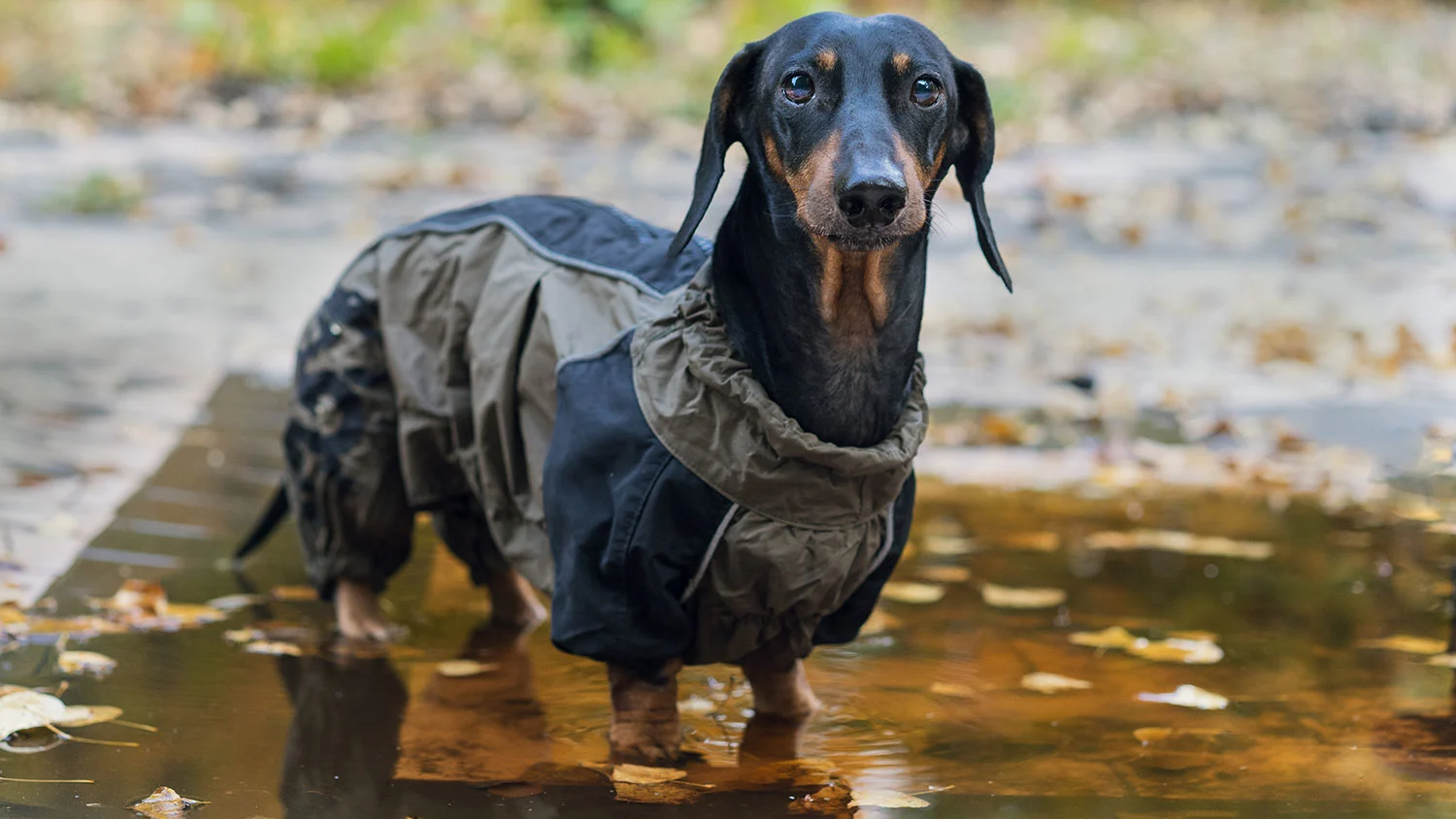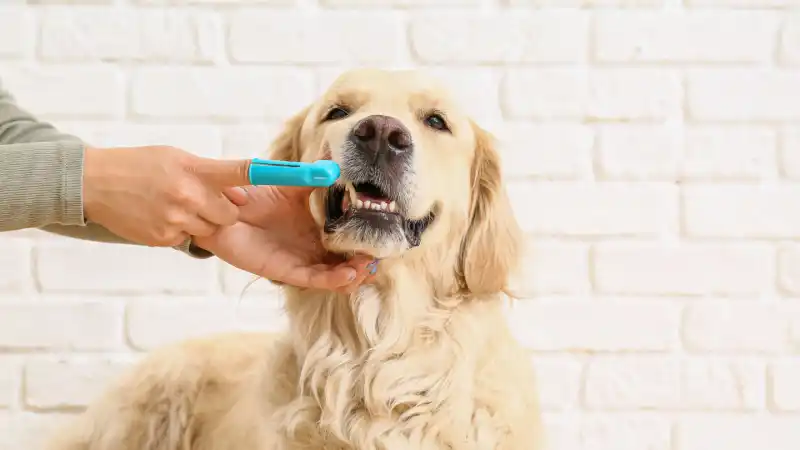Wet Weather Worries
Across the nation, this has been one of the rainiest and wettest seasons in recorded history. What impacts do these days have on our pets' health?

For many places in the United States, this winter has been one of the wettest on record. This can mean trouble for pets and their owners who have to brave flooding yards, walk in the pouring rain, and spend too much time trapped inside. Whether you choose to put your umbrella to use or hunker down indoors, it’s important to remember that extended wet weather can pose a few dangers to your dog.
1. Decreased Exercise
Fair weather dog owners may not be up to a long walk in the cold rain. Some dogs feel the same way, preferring to run outside for a quick bathroom break, before drying off and heading back to the couch. Other dogs, especially high-energy breeds, may adore the environment created by endless wet weather. Nothing beats a romp in a muddy backyard puddle! Even if you don’t love the rain, it’s important to remember that some dogs need a change of scenery and the exercise of a long walk to keep them happy. If this sounds like your pup, get ready to grab your rain boots and go jump in a few puddles!
2. Less Mental Stimulation
Less time spent playing with other dogs and sniffing new smells means less mental stimulation for your dog. Lucky for you, there are plenty of games to play indoors to keep your dog’s brain engaged and to resolve cabin fever. Set up an indoor agility course, run through a few obedience commands, or buy your dog a new puzzle toy to help keep him entertained!
3. Dangerous Standing Water
During periods of high rainfall, bodies of water can overflow and spread bacteria to a wider area. An increase in precipitation and humidity can also allow parasites to survive longer in the environment. When your dog is playing outside during or after a rain storm, ensure he doesn’t drink from puddles of standing water .
Giardia, a parasite spread by contact with feces from an infected animal, can be spread farther during rainfall when feces is washed away from its original location. Dogs who are playing outside may pause to drink out of a puddle, ingesting the parasite and becoming infected. If you suspect your dog has ingested water from the ground and is now showing symptoms of infection such as diarrhea, weight loss and decreased appetite, take your dog to your veterinarian right away.
Leptospirosis (“lepto”) is a bacterial pathogen that is also passed through ingestion of contaminated water; however, often it is due to urine contamination. Lepto is a considerably more serious disease that can cause damage to the kidney and liver. If your dog has been playing outside in an area with standing water and begins showing signs of stiffness in the muscles, sudden fever, depression and a lack of appetite, he should be seen by a vet immediately. Depending on your dog’s activities and your geographic location, your veterinarian may also recommend that you vaccinate your dog for lepto to reduce his risk.
4. Pneumonia
Dogs who are left in wet, cold weather for extended periods of time may develop pneumonia. Even if your dog loves to play in the rain, keep his play sessions to a reasonable length of time and be sure to dry him well when he comes in to warm up. Another option is to dress your dog in a puppy rain jacket to help keep his coat from soaking through. If your dog begins to have difficulty breathing, or develops a cough or a runny nose, take him to the vet right away as he may have pneumonia.
5. Monitor Your Dog's Ears
Ear infections become more prevalent during wet weather, as many pet owners forget to dry their dog’s ears after taking their dog out in the rain. Moisture easily accumulates in floppy-eared dogs, allowing for bacteria and yeast growth that causes an ear infection. Remember to clean your dog’s ears if your dog gets wet in the rain or from fun splashing in puddles.
6. Skin Conditions
Excessive moisture on your dog’s skin can cause conditions that are both uncomfortable and dangerous for your pup’s health. Acute moist dermatitis, also known as hot spots, are caused by moisture on your dog’s skin that turns into a sore and becomes infected. Rain rot is another common and highly contagious skin infection that is most prevalent during wet, humid weather when dog’s have a full winter coat. If your dog is showing symptoms of a skin condition - such as itching, redness of the skin, scabbing, etc. - take him to the vet for treatment. You can help prevent these issues by thoroughly drying your dog after he plays outside in a wet environment and reducing the amount of time he spends standing or laying in puddles or on soggy ground.

Mary comes to AKC Pet Insurance with an extensive background in animal care. As a lifelong animal lover, she has a passion for promoting pet health and wellness. Mary lives in Kentucky with her orange kitty, "Cat" and her dog, " Wubbi".
READ MORE ARTICLES

